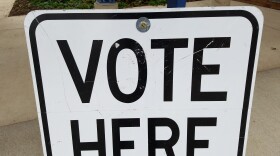A blog post in New York Magazine has been sweeping around the internet because it calls into question the results of the 2016 presidential election.
The piece intimates that a prominent professor of computer science at the University of Michigan, J. Alex Halderman – along with a voting rights attorney - believe there is a “suspicious pattern” that merits further review of the election results in the three key swing states of Wisconsin, Michigan, and Pennsylvania.
It was reported that the two have been in phone contact with the Clinton campaign urging them to press for a recount in these states.
But when we reached out to Halderman, he directed us to his blog post where he says the magazine didn’t get it right.
Halderman has reached out to the Clinton campaign asking for more scrutiny of the election results, but not because he thinks hacking took place in these states.
Rather, he says that hacking election systems is not "out of the realm of possibility," and that’s why he, and others, believe the results of the elections should be audited.
More from his post:
Were this year’s deviations from pre-election polls the results of a cyberattack? Probably not. I believe the most likely explanation is that the polls were systematically wrong, rather than that the election was hacked. But I don’t believe that either one of these seemingly unlikely explanations is overwhelmingly more likely than the other.
Halderman and others have urged states to adopt policies that require an audit of election results because it has been demonstrated that voting machines in the U.S. “have serious cybersecurity problems.”
Here's a video demonstrating how this could happen:
“That isn’t news,” Halderman writes. What IS news, in his opinion, is that in many states, like Michigan – where Clinton lost by the slimmest margin in the three swing states of PA, MI, and WI - there is no policy in place to verify that a hack didn’t take place.
Halderman points out that others have called for these audits, especially in states where results were close.
MIT’s Ron Rivest and University of California’s Philip Stark argue that a full recount is not needed to check the voting system.
More from their opinion piece published in USA Today:
There’s an easier way: an audit that manually examines a random sample of the ballots in a way that has a large chance of detecting and correcting incorrect results. This is called a “risk-limiting” audit. If the reported winner of a contest really won, a risk-limiting audit generally needs to examine only a small fraction of the ballots. But if the reported winner actually lost, a risk-limiting audit has a large chance of indicating that a full hand count is needed to set the record straight.
They argue the math to check the results is simple, and could be done easily – especially in states where the margin of victory was large.
More from their piece:
The few states where the contest was tight would have to do more work. Michigan had the smallest margin among states that Trump carried. To get 95% confidence there would require checking about 11% of the ballots.
Halderman and others are not arguing that the election was definitely stolen. They are arguing that governments should put in place checks and balances to ensure hacking – or some other computer problem - is not taking place.
More from Halderman:
… it might come as a surprise even to many security experts: no state is planning to actually check the paper in a way that would reliably detect that the computer-based outcome was wrong. About half the states have no laws that require a manual examination of paper ballots, and most other states perform only superficial spot checks. If nobody looks at the paper, it might as well not be there. A clever attacker would exploit this.
The Clinton campaign is being contacted by those who want to see more audits conducted because a count for a recall from a candidate is one way to ensure some type of audit happens.
In Michigan, the deadline for the Clinton camp to challenge the results is next Wednesday.







